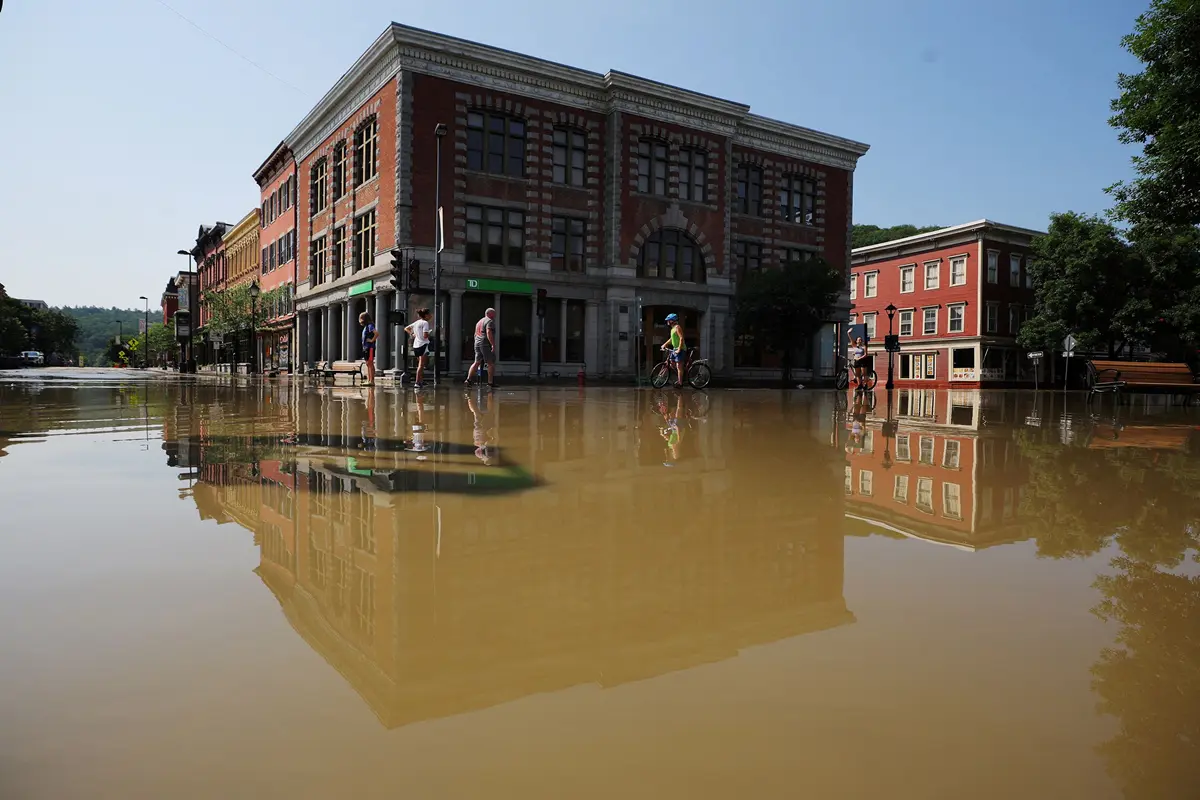Research to Focus on Resiliency and Infrastructure of Different Communities
 Image by Brian Snyder/Reuters
Image by Brian Snyder/Reuters
09/15/2023
By Marlon Pitter
Sweltering temperatures around the globe made the summer of 2023 the hottest on record, and scientists predict that more intense and more frequent extreme weather events are coming.
While attention is often focused on the impact on physical infrastructures in the aftermath of extreme weather such as hurricanes, flash floods and wildfires, a trio of UMass Lowell professors is now studying the social impact of such events in several Massachusetts communities.
The study, led by Criminal Justice Prof. Arie Perliger, will focus on cities and towns of various socioeconomic statuses. Environmental Earth and Atmospheric Sciences Profs. Mathew Barlow and Juliette Rooney-Varga, director of the campus Climate Change Initiative, are collaborating on the research along with graduate and undergraduate students.
After communities are affected by extreme weather, the researchers plan to gather data via interviews about their crime rates, civic engagement, financial practices, trust in local authorities and attitudes toward climate change and related environmental policies.
Perliger, an expert in political violence, extremism and security policy, says that higher temperatures are an example of how weather can have adverse social effects on communities. For instance, a recent study published in Injury Epidemiology found a correlation between rising temperatures and increased gun violence.
“We know from studies that were conducted that there's a correlation between heat levels and different types of crimes,” he says. “There's a well-known study that was conducted in Chicago that shows that every increase of 10 Fahrenheit degrees increases (the likelihood of) a shooting in the city by 20%.”
For Rooney-Varga, the information that the trio gathers is paramount to helping local governments and nonprofit organizations prepare for these events.
“We need to be thinking not just about how to create resilient and better-adapted physical infrastructure, but also how we create better-adapted and more resilient social infrastructure,” she says. “How do we ensure that our governments know what kind of resources they're going to need to support and help people as these impacts intensify?”
The project is funded by a $14,160 seed grant from the Office of Research and Innovation. While the project could last up to two years, Perliger hopes to gather enough information to complete the pilot study within a year. From there, the plan is to secure more funding for a larger-scale study that reaches outside of Massachusetts.
For now, Perliger says the information the researchers collect can help demystify the local impacts of climate change for the UMass Lowell community.
“Sometimes we talk about climate change in very abstract ways, but I think that through this kind of research, students can really understand how it really impacts their own neighborhoods, their own communities, their own towns and so on,” he says.
